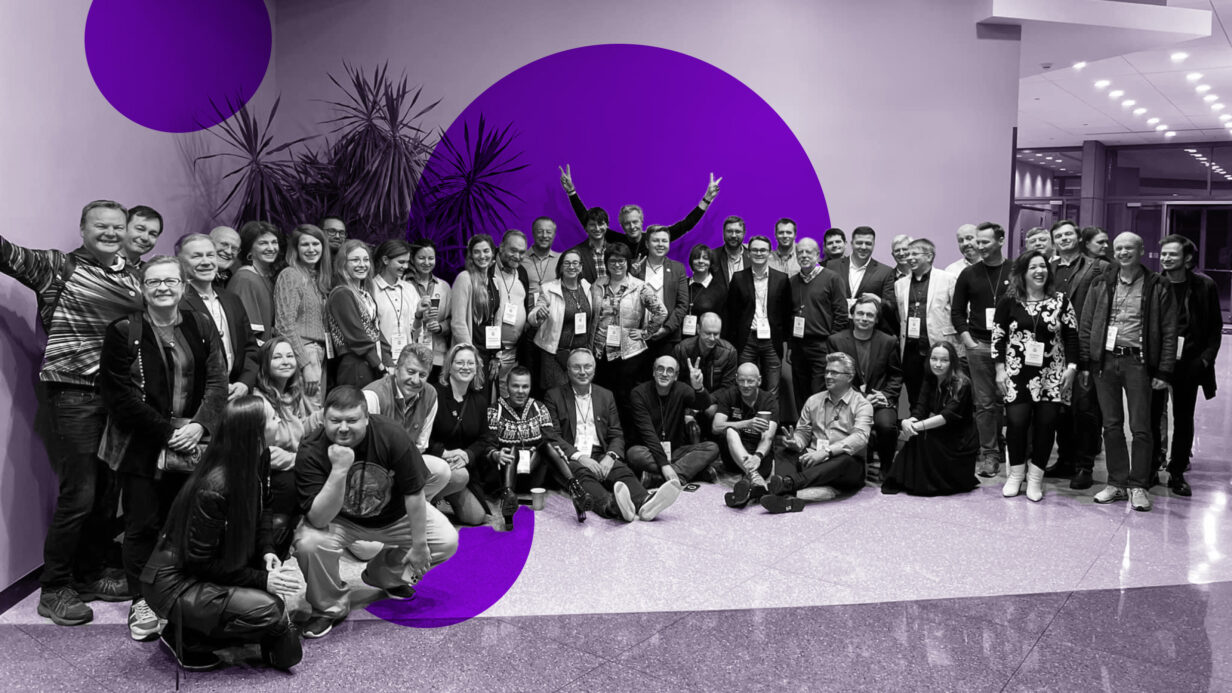
In Chicago, at Northwestern University, an annual conference was held, organized by the Russian-American Association of Scientists Russian American Science Association (RASA). This time the meeting was timed to coincide with the 150th anniversary of Sergei Rachmaninov, the composer who emigrated to the United States in 1918. More than 50 scientists from different states and countries came to Chicago, who for two days talked about their achievements, shared their experiences and made plans for the future. The conference itself is primarily scientific, but there was no discussion of political news. Denis Cheredovattended the meeting of scientists and learned what topics it was devoted to and how the political situation in the world affected the work of Russian-speaking students, candidates of sciences, and professors abroad.
The conference of scientists in Chicago kicked off just days after the Hamas attack on Israel. Russian-speaking scholars of different generations have already shown how, after Putin’s aggressive invasion of Ukraine, they supported the Ukrainians without abandoning Russia. And now, after the Hamas attack on Israel, RASA published letterin which scientists condemn terrorist attacks on the Jewish state. Participants of the 14th RASA conference immediately stated that they will now have to live and work when there are already two wars going on in the world at the same time.
“When Russia launched a full-scale attack on Ukraine, many questions immediately arose before us. We didn’t even know how Russian, Russian-speaking and all that stuff now relates to words and names. And we decided to speak out in defense and help scientists from different countries who are suffering as a result of this war, who are suffering as a result of a totalitarian dictatorship, who are forced to leave their countries en masse and end up in the West, where we have already taken place,” said the professor at the University of North Carolina Alexander Kabanov.
It is to help new immigrants that RASA created a special site in Russian. The organization now has curators to communicate with scientists who are now forced to leave Russia and immigrate to the United States.
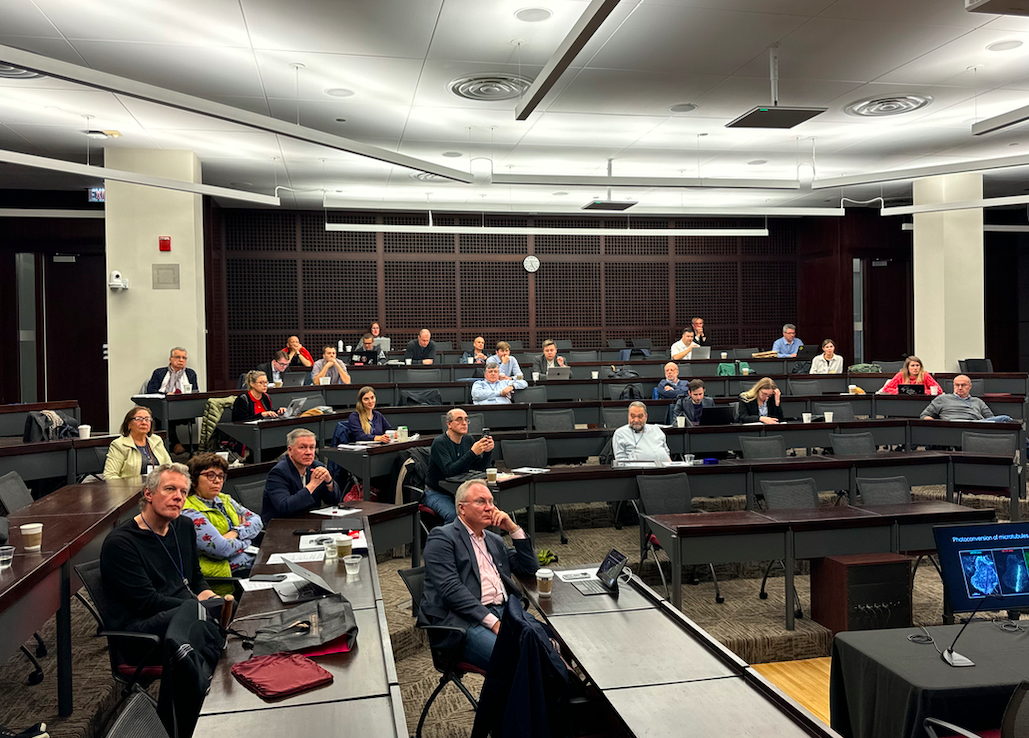
According to tradition, at the beginning of the conference, RASA President Elena Atochina-Wasserman presented award named after the outstanding physicist Georgy Gamow</a >.
Georgi Gamow is a theoretical physicist known for his breakthrough research in quantum mechanics, atomic and nuclear physics, astrophysics, cosmology and biology. He was born in Odessa and worked in Leningrad, Paris, Gottingen, Cambridge, Washington, Berkeley, Boulder. Every year this award is given to Russian-speaking residents abroad for their outstanding contributions to science and for the preservation of Russian cultural heritage. This time the prize went to MIT professor Viktor Chernozhukov and Oxford University professor Andrey Zorin.
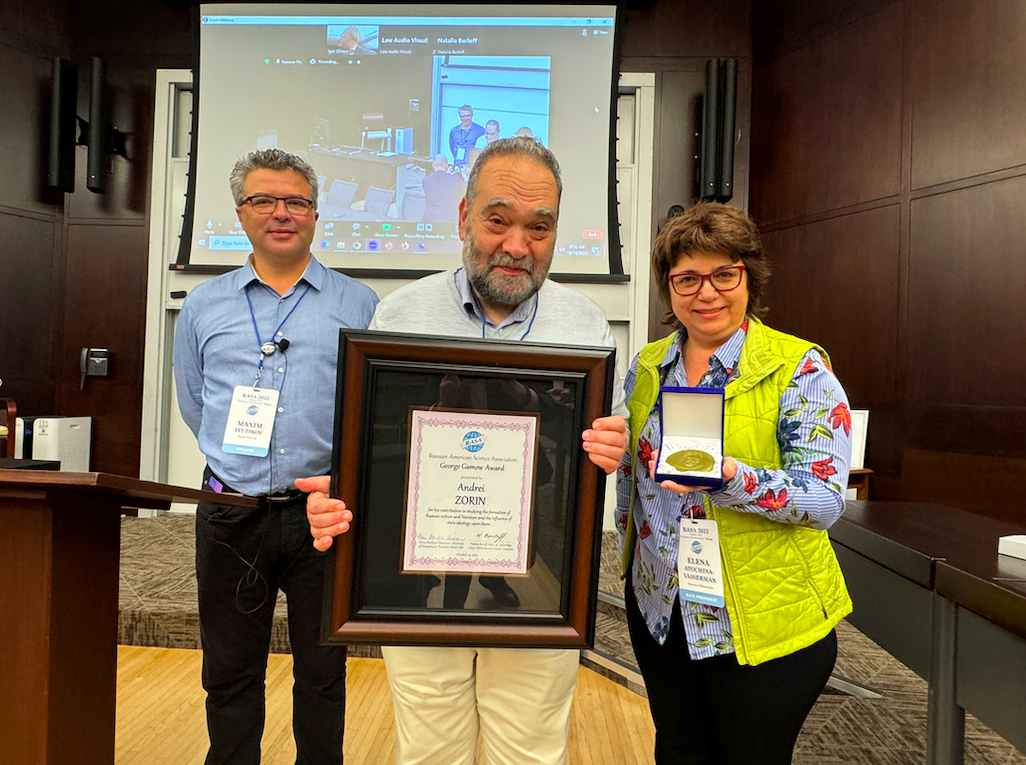
The RASA conference brings together representatives from a variety of fields – mathematicians, economists, physicists, chemists, biologists. At the 14th meeting in Chicago, they discussed various topics and studies dedicated to the work of Russian-speaking scientists. For example, Anton Lukashevich from the University of Iceland talked about what ensemble statistics is: how we see the world around us in its entirety. And the report by Andrei Rzhetsky from the University of Chicago was devoted to computer analysis of complex human phenotypes.
It is very important that right now Russian-speaking scientists can communicate in a narrow circle on various topics, support each other and share scientific knowledgeachievements.
“There are truly outstanding world scientists herescale. For example, Viktor Chernozhukov, a professor from MIT who studies economics, Vladimir Gelfand – now he had a report in the section of molecular biology. He is the son of the outstanding mathematician of the 20th century Israel Gelfand, who was a student of Kolmogorov, who, in turn, was one of the founders of modern probability theory. That is, in a sense, these are some kind of living legends. Also a lecture about Tolstoy and his attitude to war. This is all close to me too, because I love fiction and “I’m reading Herzen at this particular moment,” says young scientist Konstantin Guryev from State College in Pennsylvania.
Oxford University Professor Andrei Zorin gave a presentation on the topic “Tolstoy and violence.” It was no coincidence that Zorin chose his research about Leo Tolstoy for the presentation. The philologist is convinced that Tolstoy was a pacifist. However, he knew that people are imperfect and that there are no people in the world who are able to fully embody “>all his ideals. He himself was not a person capable of living in accordance with his own absolutely nationalistic demands. And he said many times that he, like everyone else, is a sinner. But here’s what’s important: Tolstoy’s man has the opportunity to strive for the ideal.
Professor Zorin before the war in Ukraine lived in two countries: Russia and England. He was born and raised in Moscow. Now he has no plans to return to his homeland. Only “if life allows,” adds the literary critic.
“I would say that now the reaction of Russian society to the horrors taking place is average. I don’t see anything special in her. This is how most warring societies react. But when a person sees something terrible and cannot prevent it in any way, he normalizes it. This is an internal normalization mechanism that just keeps you from going crazy. When you see total evil, you must explain itandfind an excuse for it. This is how the human psyche works, this is how most people work,” says Zorin.
According to the philologist, Tolstoy even devoted a textbook to this topic. In it, the writer talks about a person’s ability to find explanations for everything, justify everything and come to terms with his own way of life.
Explanations for what is happening in the world are also found in the modern scientific community. Like-minded people gathered at a conference in Chicago. These are people who work at different universities, and at the same time they condemn Russia’s invasion of Ukraine and understand why some scientists and artists have either already left abroad or are planning to emigrate. The uniqueness of this meeting also lies in the fact that dozens of professors and scientists gather in one place, united not only by political like-mindedness, but also by the Russian language.
Chemistry professor at the University of Southern California Anna Krylova says that lately she has often been asked who she considers herself to be: Russian, Ukrainian, American?
“I was born in Ukraine. Studied in Moscow. And I always say that this classification based on biological and national characteristics really disgusts me. That is, I believe that we should think to ourselves as people, as citizens of the world, as scientists,” says the professor.
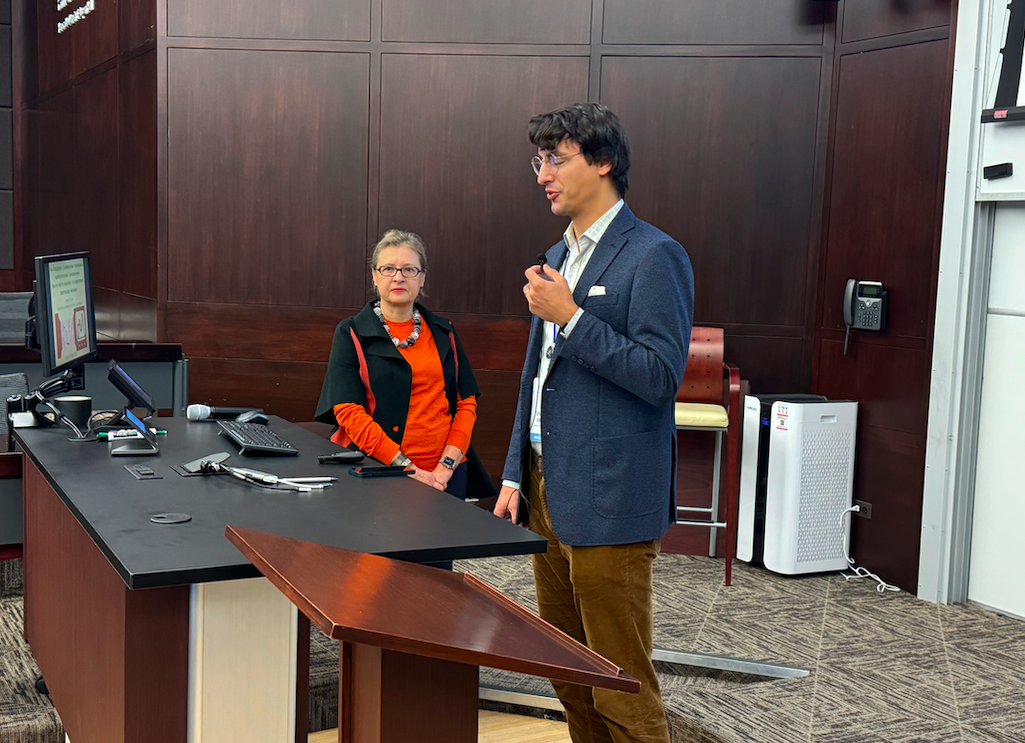
At the same time, Anna Krylova notes that even among the scientific community there are completely different people who may hold completely different views.
“There are even scientists who now say that Hamas declares everything wonderfully and we should support them. That is, these are people with absolutely monstrous views,” adds the chemist.
Also, since the beginning of the war in Ukraine, the abolition of Russian culture has been discussed among Western intellectuals. Anna Krylova gives one illustrative example demonstrating that this problem is really relevant.
“There is an American writer, Elizabeth Gilbert, author of the popular novel “Eat, Pray, Love.” And so she recently announced that she is canceling her own book “Snowy Forest”. Why? Because this is a novel that describes a family of religious hermits, Old Believers. And the action takes place in Siberia. And since there is now a war, Russia attackedUkraine and people are being killed by missiles, then this book about Russia may offend and cause pain to someone. This is simply monstrous destruction,” says a professor at the University of Southern California.
Anna Krylova’s colleague, research fellow at NORTHERN ILLINOIS UNIVERSITY Maxim Anokhin is also involved in chemistry. It’s hard to believe, but, according to him, the leadership of his university banned Maxim from participating in the conference. Anokhin is sure that his participation was primarily opposed by his former scientific supervisor, Evgeniy Nesterov, Professor of the Faculty of Chemistry and Biochemistry. The young scientist believes that the ban on the leadership is primarily related to the views of the professor, who, while working in America, supports the Russian regime.
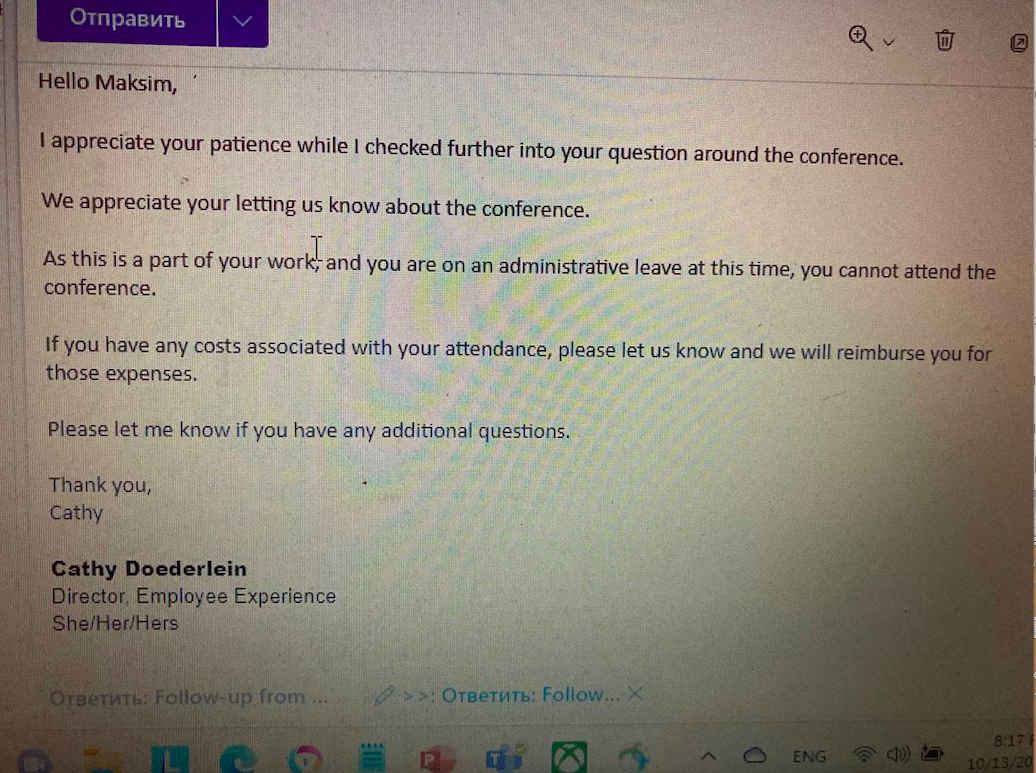
“One day he and his wife invited me home. This was in March. Under the pretext that a new employee has arrived, we need to meet him. So they raised a toast to Russia’s victory in this war. I was ready to devour my glass. Well, naturally, I didn’t pick it up. I raised a toast to Moscow University because I received my PhD there from Moscow State University. But, of course, raising a glass to Russia’s victory in this war is immoral. This is horror, this is some kind of nightmare.”
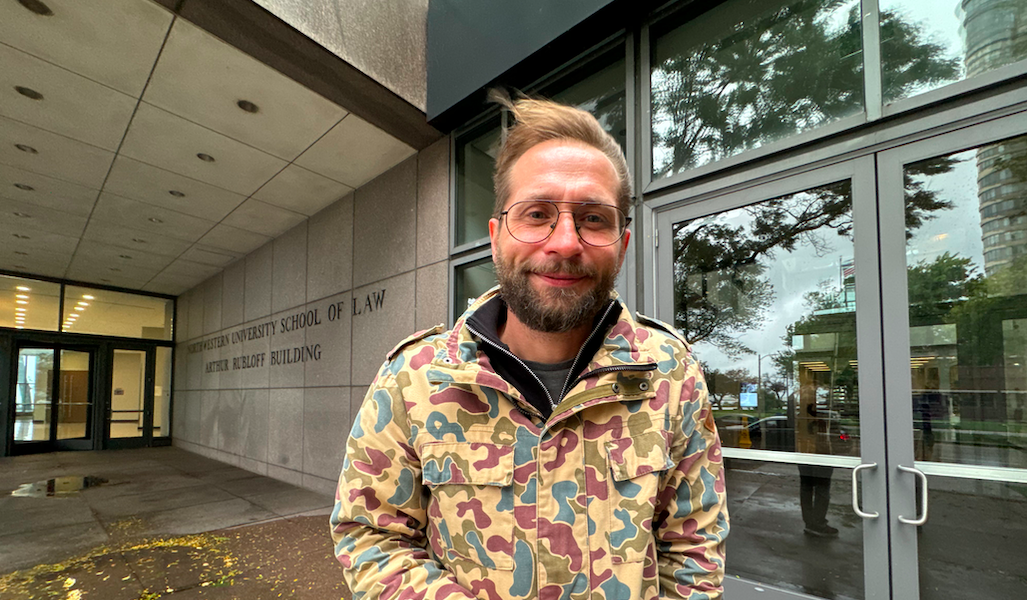
The publication T-invariant sent a request to the management of NORTHERN ILLINOIS UNIVERSITY with a request to comment on the current situation. But we never received an answer. Meanwhile, researcher Maxim Anokhin is already looking for a new job. According to Anokhin, his political views and his support for Ukraine interfere with his career at the University of Illinois.
One of the most honorable speakers of the conference appeared in the corridors of the University of Chicago – conductor Viktor Yampolsky. During his long concert career, the professor performed all of Rachmaninoff’s works. Now Yampolsky leads the orchestra of the Northwestern University Bienen School of Music.
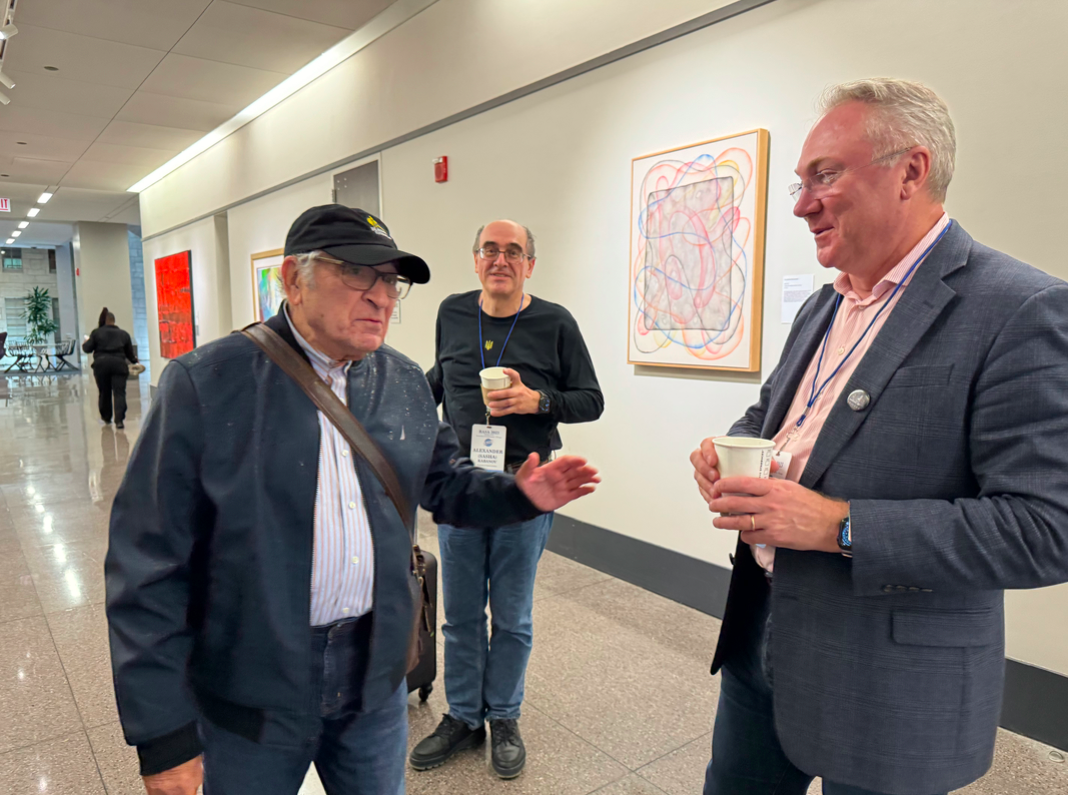
Yampolsky told why Rachmaninov gained the fame of “the most Russian composer” and why today, in his opinion, emigrated cultural and scientific figures will feel a connection with Russia until the end of their days.
A special feature of this conference was the fact that RASA was able to help more than 10 young scientists come to Chicago. For example, Alexander Kabanov was able to bring a Ukrainian woman to the United States, who now works at his university.
“In the very first days of the war, I started work and invited a girl who grew up in Bakhmut. And it was very difficult, because it was impossible to bring her. The Americans refused her a visa and said that she would not return. But you have nowhere to return to Ukraine. People from Russia probably experience similar things. Someone arrives, someone is waiting for a visa, and so on. One of the elements of personal one-on-one assistance is, of course, those who know you by profession. They are turning to you. If you have a position (place), you help. But, of course, this is not a bottomless network. Many of these people left Russia, but when they come here, to Israel or to some other places, they, in general, must adapt to a new life, change their field of work, change direction, understand how they can enter the labor market. And to help them, we created a website about the Russian movement,” says Professor Kabanov.
Graduate student Stanislav Cherepanov works at the University of Michigan in the Department of Biophysics. Several years ago, Stanislav was diagnosed with sarcoma. But now it’s all over. Now the graduate student is studying molecular dynamics with constant pH (Constant pH Molecular Dynamics, CpHMD). This method allows you to simulate the behavior of molecules under conditions where the pH of the environment is an active parameter. pH plays a key role in many biological processes, such as protein folding, catalysis, and ligand binding and release. Traditional molecular dynamics methods do not take into account changes in pH, which can lead to insufficiently accurate oror incorrect predictions. The CpHMD method solves this problem by allowing scientists to simulate dynamic changes in the proton state of molecules in response to changes in pH. This opens up new opportunities for studying biological systems, especially those where pH plays a critical role.
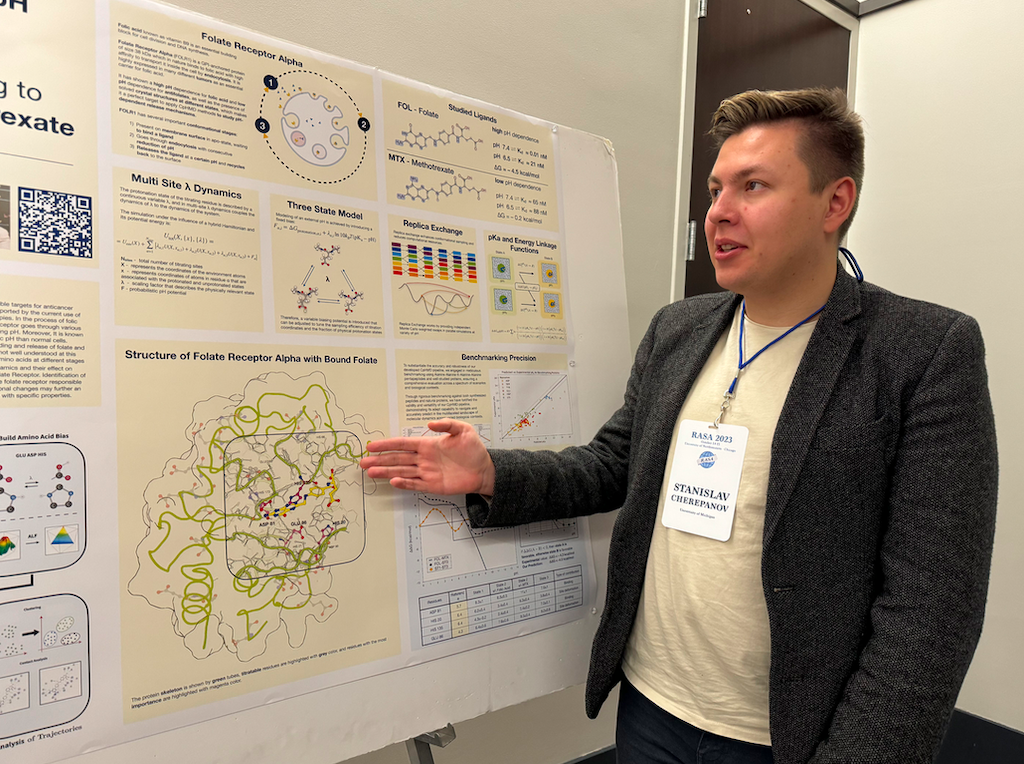
“My goal in this research is to develop and optimize CpHMD methods for more accurate and efficient modeling of biological systems. This could help in understanding the mechanisms of various biochemical processes and in the development of new drugs, especially for diseases associated with changes in pH, such as cancer. In our example, folic acid binds to a protein membrane, after which it undergoes endocytosis, where it forms a ball that passes into the cell. Along the way, the acidity level decreases, which releases folic acid. There is a class of drugs – antifolates, where the drug binds tightly, preventing this process. It is harmful to cancerous and non-cancerous cells, such as the liver. It is actively used in chemotherapy.
Given that cancer cells have a more acidic environment, this understanding could be key to developing new cancer treatments that could help understand how this happens. Computer modeling allows us to quickly and efficiently understand the mechanism and come up with potential new drugs, saving time and resources compared to traditional methods,” says Stanislav Cherepanov.
If a young scientist can identify exactly how changes in pH affect the activity and function of folic acid receptors, then this may make it possible to create new medications that will specifically block or activate these receptors only in cancer cells. Such medications may offer more effective and safer treatment, reducing the risk of side effects and improving patients’ quality of life.
And such research plays a huge role in science, since cancer is one of the main causes of death in the world. Any new knowledge in this area could lead to the development of innovative treatments and improved prognosis for millions of people.
All these advanced scientific achievements could remain only within one scientific field where Stanislav Cherepanov works. Therefore, the value of the conference lies in the fact that scientists from different states and countries can personally show their work to colleagues and share their experience. It is already unusual for most speakers to make scientific reports in Russian, but the point of this activity is to preserve and develop the Russian language as an intellectual space, especially now when in many countries Russian is associated with the language of aggression. The Association of Russian-American Scientists has already promised that in a year RASA will again hold a conference for Russian-speaking scientists. And there will certainly be a lot of topics for discussion.
Text: Denis Cheredov